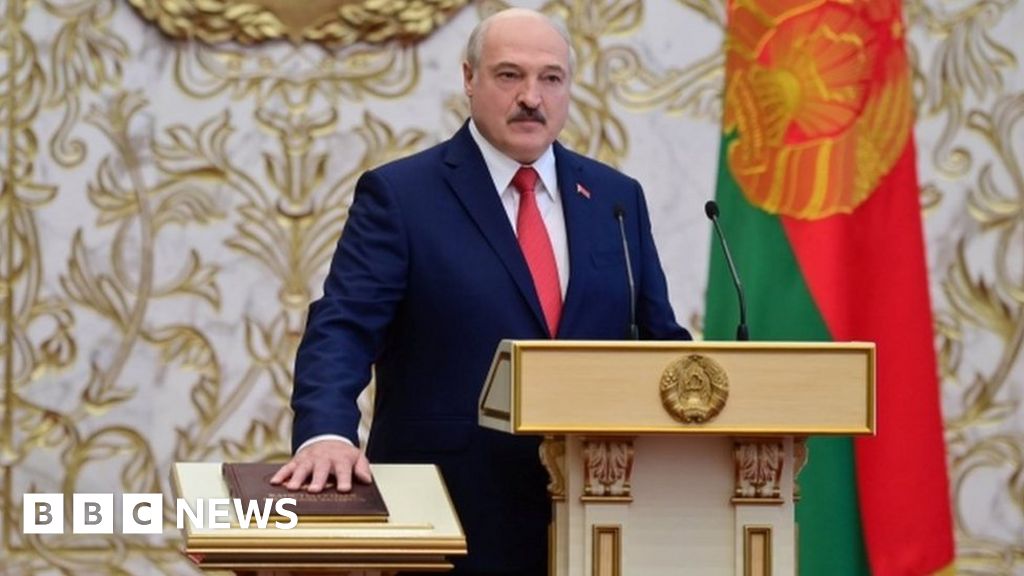image copyrightReuters
The EU has said it does not recognise Alexander Lukashenko as the president of Belarus, a day after he was sworn in for a sixth term at a secret ceremony.
The bloc’s diplomatic chief said the unannounced inauguration, as well as his disputed re-election last month, lacked “any democratic legitimacy”.
The opposition says the poll was rigged in Mr Lukashenko’s favour.
Mass protests continued in the capital, Minsk, after the inauguration. There were reports of violence by police.
The country’s electoral commission said Mr Lukashenko, who has been in power for 26 years, won more than 80% of the vote, triggering weeks of protests in the former Soviet republic.
Several hundred people attended Mr Lukashenko’s swearing-in ceremony at the Palace of Independence on Wednesday, with many streets of Minsk sealed off.
The guests were mainly loyal officials and apparently no foreign dignitaries had been invited. One opposition member described it as a “thieves’ meeting”.
Several EU countries and the US say they do not recognise Mr Lukashenko as the legitimate president of Belarus.
What is the EU saying?
“The European Union does not recognise their falsified results. On this basis, the so-called ‘inauguration’ of 23 September 2020 and the new mandate claimed by Alexander Lukashenko lack any democratic legitimacy,” the EU’s Josep Borrell said in a statement.
“This ‘inauguration’ directly contradicts the will of large parts of the Belarusian population, as expressed in numerous, unprecedented and peaceful protests since the elections, and serves to only further deepen the political crisis in Belarus.”
He added the EU was reviewing its relations with Belarus “in light of the current situation”.
What is the background?
Mr Lukashenko’s main political rival, Svetlana Tikhanovskaya, who fled to neighbouring Lithuania amid mass arrests, says she won 60-70% in places where votes were properly counted.
Many opposition figures are now in self-imposed exile in neighbouring countries amid a wave of arrests. But despite the current crackdown, anti-government protests have continued.

